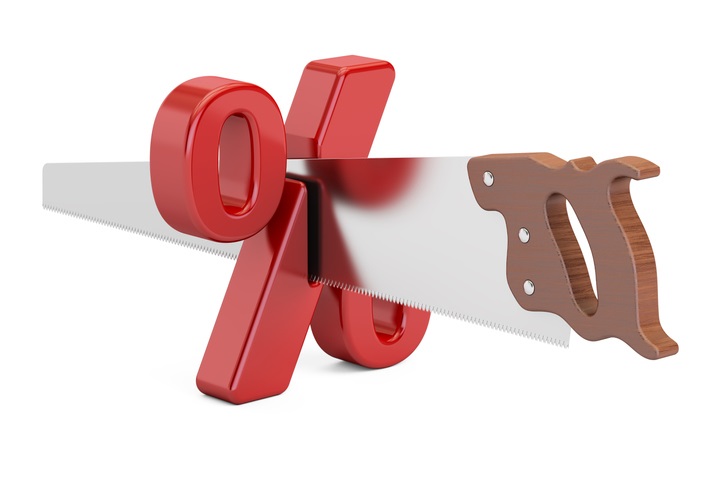NS&I to cut rates on accounts holding billions of pounds
State-backed provider to make changes next week, but says its hands are tied.
19th November 2020 12:32
by Laura Miller from interactive investor
State-backed savings provider to make changes across five deals next week, but says its hands are tied.

Billions of pounds wiped off savers’ cash accounts from next week, as National Savings & Investments (NS&I) takes an axe to rates on five of its most popular products.
From 24 November, interest rates on NS&I’s Direct Saver, Investment Account, Income Bonds, Direct ISA and Junior ISA will all be cut – leaving savers less than a week to switch into a better deal elsewhere.
On some accounts the rate cuts are so deep savers will get virtually nothing in terms of returns on their savings.
Interest on the Direct Saver will fall from 1% to 0.15% and for the Investment Account from 0.8% to 0.01%.
Meanwhile the rate on Income Bonds will drop from 1.15% to 0.01%, the Direct Saver ISA from 0.9% to 0.1% and the Junior ISA from 3.25% to 1.5%.
- Savings rates already dropping after Bank of England decision
- Following the collapse in dividends, is growth the new income?
The new rates will send these accounts tumbling down the best buy tables, a significant fall from earlier in the year when NS&I’s Income Bonds topped the easy access savings chart.
At one point, the top three easy access deals were all from NS&I.
Rachel Springall, finance expert at financial researchers Moneyfacts, said rates are so low that savers need to do their homework and be prepared to shop around to find the best deals.
“It will be up to savers to decide what account is right for their circumstances, but it’s vital they consider alternatives to the high street banks, as they can pay as little as 0.01%,” she said.
Less familiar brands, such as challenger banks and building societies, are currently paying top rates.
Springall added:
“They are perfectly safe so long as they are covered by the Financial Services Compensation Scheme, the very same scheme that protects savers’ cash stored with the big banks.”
Inflation has been very low this year, meaning the cost of goods and services have remained stable. This has taken some of the sting out of the effects of miniscule savings rates. But inflation is predicted to rise to 2.1% by the fourth quarter of 2021, and if that happens most savers will be losing money in real terms based on today’s top rates.
Ian Ackerley, NS&I chief executive, said reducing interest rates “is always a difficult decision”. He blamed successive reductions in the Bank of England base rate and subsequent cuts in interest rates by other saving account providers.
He said: “Several of our products have become best buys, and we have experienced extremely high demand as a consequence, and it is time for NS&I to return to a more normal competitive position for our products.”
NS&I is a government-backed savings account provider, so it has to balance three often competing interests: those of savers, taxpayers and the broader financial services sector.
- Are you keeping too much in cash?
- Are you saving enough for retirement? Our calculator can help you find out
When its products become too attractive because their rates are higher than competitors, NS&I faces accusations of distorting the savings market and is forced to cut rates.
Anna Bowes, co-founder of financial researchers Savings Champion, said: “After cancelling scheduled cuts earlier in the year, NS&I has gone from hero to zero in one fell swoop by implementing cuts that are far worse than the original ones.
"Unfortunately with a potential wall of money being unleashed from NS&I, which will need a new home, it has already had a detrimental effect on the rest of the savings market – and best buy rates have continued to fall as providers race to the bottom of the tables."
These articles are provided for information purposes only. Occasionally, an opinion about whether to buy or sell a specific investment may be provided by third parties. The content is not intended to be a personal recommendation to buy or sell any financial instrument or product, or to adopt any investment strategy as it is not provided based on an assessment of your investing knowledge and experience, your financial situation or your investment objectives. The value of your investments, and the income derived from them, may go down as well as up. You may not get back all the money that you invest. The investments referred to in this article may not be suitable for all investors, and if in doubt, an investor should seek advice from a qualified investment adviser.
Full performance can be found on the company or index summary page on the interactive investor website. Simply click on the company's or index name highlighted in the article.